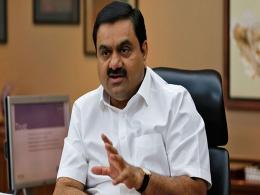The number of investors looking to tap into the stressed asset opportunity in India is rising but adhering to the prescribed timelines is critical to ensuring the success of the bankruptcy resolution processes, said panellists at a VCCircle event on Wednesday.
The panellists at the VCCircle Stressed Assets Investment Summit in Mumbai were discussing the growing interest of many global investors in India’s stressed assets and how a faster judicial process can help the overall insolvency resolution process.
Sharad Bhatia, managing director at private equity firm Multiples Alternate Asset Management, said that the Insolvency and Bankruptcy Code has brought in several differences from previous regimes such as the Sick Industrial Companies Act and the Securitisation and Reconstruction of Financial Assets and Enforcement of Securities Interest Act, 2002 (SARFAESI).
“The IBC prescribes a timeline at every step and gives a fair amount of scope for judicial intervention. This has led to the success so far in three of the 12 cases,” he said, referring to the big stressed asset cases that the Reserve Bank of India had listed last year.
Venkattu Srinivasan, group head of asset reconstruction and structured credit at Kotak Mahindra Bank, also stressed on the importance of the timeline.
“The past regimes for resolving stressed assets failed because the judiciary took an enormous amount of time. In the current IBC process, the resolution professionals have to be largely credited for sticking to the timeline. And for the IBC to succeed, the judiciary also has to stick to the timelines,” Srinivasan said.
Both Bhatia and Srinivasan said that promoters are now worried of losing control of their companies and that this has played a significant role in expediting resolution of stressed assets. “For the first time in 20-30 years there is a palpable fear among the promoters of losing control over their company,” Srinivasan said.
Strategic or financial investors?
Moderating the session, Mohit Saraf, senior partner at law firm Luthra & Luthra law offices, raised a question on the foreign capital waiting on the sidelines and what more needs to be done to be able to tap either strategic or financial investors.
Srinivasan said that strategic investors can invest for a 20-year period but financial investors require a minimum internal rate of return within a certain period.
Sumit Khanna, partner and national head of corporate finance and restructuring at Deloitte India, said that foreign capital has found its way into the country as was evident from the examples of AION Capital and the Bain-Piramal joint venture. “However, there are issues such as information disparity where a lot of data are not structurally maintained and are available in pockets.”
Khanna, however, said there is a wide scope for private equity investors across sectors such as consumer, pharmaceuticals, technology and financial services.
Amit Agarwal, head of stressed assets strategy at Edelweiss Asset Reconstruction Company, said that the Indian economy is resilient and a lot of “intelligent capital” is watching the development. “Every opportunity is viable at a price and within a certain time frame. There are several hedge funds that have looked at short-term investment opportunities in stressed companies such as Binani Cements, Essar Steel and Bhushan Steel. These investments are typically for nine to 15 months,” he said.
There is another type of capital–structural capital. But this requires an average investment holding period of five to seven years. It is in this situation that investors would require professional management if they want to stay invested for a long period.
Piecemeal sale
Another way to increase the value proposition of the stressed assets is to sell those in parts. There are various assets which an incoming investor didn’t want to buy entirely. By selling the business in parts, an optimum value could be created, said Srinivasan.
Bhatia agreed with Srinivasan and said a piecemeal sale of assets could be interesting to private equity investors.
Apurva Jayant, partner at Luthra & Luthra Law Offices, said that, having worked with international investors, including Japanese investors in a few instances, she observed that global investors understand there is an operational and acquisition risk in the Indian market. However, there is consistency in policies and legislation, she added.
The panellists also said that asset reconstruction companies and resolution professionals have played a significant role in the entire bankruptcy process.







